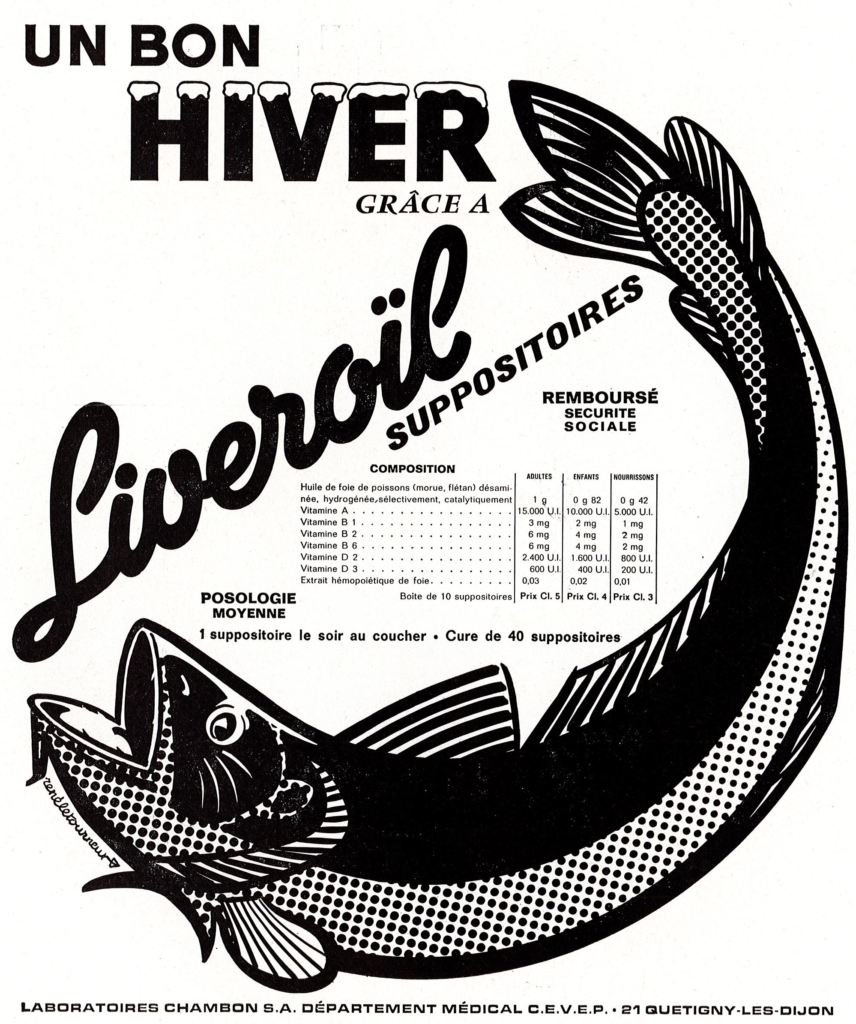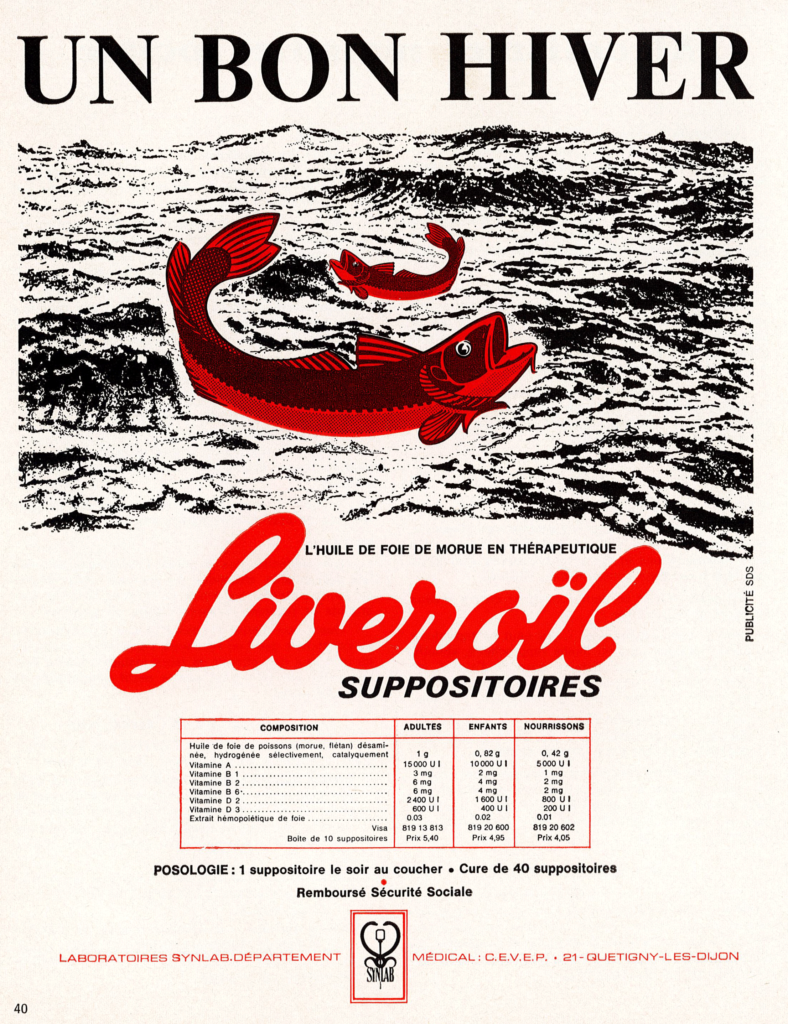The dietary use of liver fish oil was popular in the 1960-70s, notably because these oils are rich in polyunsaturated fatty acids (PUFA). In particular, they contain n-3 PUFAs such as eicosapentaenoic acid and docosahexaenoic acid, known to have variety of health benefits against cardiovascular diseases including hypotriglyceridemic and anti-inflammatory effects. These fish-oils supplements were used well before the omega-3 fatty acids became popular.
The drug was formulated as a suppository, in particular for young children. In general, the rectal administration of a solidified suppository preparation permits to increase the bioavailability of the product in comparison with that obtained by the oral route. In addition, cod-liver oil and other marine products containing polyunsaturated fatty acids have anti-inflammatory and anti-bacterial effects, and thus may be useful in the treatment of various inflammatory and infectious diseases. The product is not used today but fish oil remains one of the most commonly consumed dietary supplements.
The drug promises “a good winter” (“un bon hiver” in French), thanks to the Liveroil suppositories. The fish origin was crystal clear…




